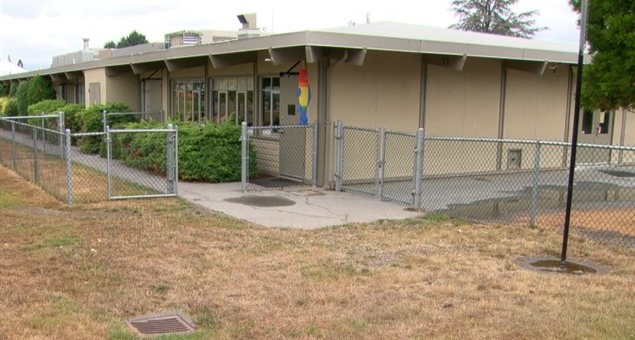Community Blog
Should we Lower the Voting Age to 16? What do you think?
Background
One of the fundamental issues that motivated me to get into politics was that in my view, far too many of our political leaders are shortsighted in their decision-making. That is, too often political opportunism and the quest for re-election are the determining factors and primary motivators in a prevailing short-sighted and short-term political agenda. But that does not serve society well in the long run.
Let me give you three concrete examples.
- Recently, our premier suggested that the solution to the underfunding of public education lay with growing the economy. Fundamentally the B.C. Liberals have it backwards. A quality education is not the luxury of a strong economy. A quality public-education system is what builds a strong economy. Our society has thrived through innovation precisely because of the emphasis we have placed on education. The doctors, engineers, nurses and skilled labour of tomorrow — those who will take care of us as we age — are in the school system today. Surely it’s in all of our long term interests to ensure substantive short term investment in the society of tomorrow.
 We’ve all heard of the Dr. Suess book The Lorax, in which the Once-ler destroys the Truffula forest in a short-sighted quest to produce Thneed garments (“A-fine-something-that-all-people need”). In the end, with the forest gone, the Once-ler’s wealth and prosperity collapses and he lives a depressed life of solitude. The Lorax, published in 1971, beautifully articulates the result of short-sighted and unsustainable resource management. A Loraxian approach to resource management does not protect our renewable resources, natural environment or build public support. Yet this is the approach we are far too often taking in British Columbia, or frankly more broadly in Canada as a whole. It’s a bit like being given a great big inheritance, using that inheritance to throw a huge party, and then waking up the next day broke, with a wicked hangover and asking oneself “Now What?”.
We’ve all heard of the Dr. Suess book The Lorax, in which the Once-ler destroys the Truffula forest in a short-sighted quest to produce Thneed garments (“A-fine-something-that-all-people need”). In the end, with the forest gone, the Once-ler’s wealth and prosperity collapses and he lives a depressed life of solitude. The Lorax, published in 1971, beautifully articulates the result of short-sighted and unsustainable resource management. A Loraxian approach to resource management does not protect our renewable resources, natural environment or build public support. Yet this is the approach we are far too often taking in British Columbia, or frankly more broadly in Canada as a whole. It’s a bit like being given a great big inheritance, using that inheritance to throw a huge party, and then waking up the next day broke, with a wicked hangover and asking oneself “Now What?”.- Right now, it is in every person, in every household, in every municipality, in every city, in every province, in every country in the world’s best interest to do precisely nothing about global warming from a traditional cost-benefit point of view. That is because the costs of action are borne by the individual and the costs of inaction are distributed over 7 billion people in the next generation. Global warming is literally a textbook example of the Tragedy of the Commons with the atmosphere being the shared natural resource.The decisions we make today as to whether or not we put an increasing price on emissions will have profound consequences on the climate, natural and built environment, biodiversity and availability of water over the next century. Yet those making the decisions today will not have to live the consequences of the decisions they are making.
To summarize, most of the grand challenges of our time require decision-makers to look beyond the next election cycle and instead reflect upon the long-term consequences of their decisions. Dealing with poverty, homelessness and the increasing income disparity between the wealthy and the poor, or sustainable resource development, global warming and other environmental issues, or envisioning ways and means of moving towards more steady-state, diversified economies that aren’t subject to wild boom and bust cycles all require us to reflect upon the importance of intergenerational equity. This leads me to pose the following question:
Should the present generation also consider future generations in
the fiscal, social and environmental decisions we make?
I happen to think we do.
Yet herein lies the fundamental problem. Today’s decision-makers don’t have to live the long-term consequences of the decisions they make and those who do are either not allowed to, or are not participating in, our democratic institutions.
 As shown in the figure above, upwards of 70% of seniors over the age of 65 have voted in our recent federal elections. Only around 40% of youth between the ages of 18-24 voted (age-related demographic data likely won’t be available until May for the 2015 federal election). Is it any surprise that many of our political leaders target their promises and messaging to a demographic that they know will vote. I’d wager that when the results become available, we’ll see that the youth participation rose in the 2015 election as it was clear that Prime Minister Trudeau and his Liberal team were discussing values that mattered to the youth of today.
As shown in the figure above, upwards of 70% of seniors over the age of 65 have voted in our recent federal elections. Only around 40% of youth between the ages of 18-24 voted (age-related demographic data likely won’t be available until May for the 2015 federal election). Is it any surprise that many of our political leaders target their promises and messaging to a demographic that they know will vote. I’d wager that when the results become available, we’ll see that the youth participation rose in the 2015 election as it was clear that Prime Minister Trudeau and his Liberal team were discussing values that mattered to the youth of today.
Voting Age History
The voting age was not always 18 in British Columbia and Canada. In fact, it wasn’t until 1970 that the Canada Elections Act was amended to drop the voting age from 21 to 18. In British Columbia we made the jump in two steps. First, in 1952 we dropped the voting age from 21 to 19, but it wasn’t until 1992 that we made the subsequent change to lower the age to 18.
 Around the world more and more jurisdictions are openly discussing the notion of dropping the voting age to 16. In fact, a growing number have actually done so. The most recent and notable example of this occurred in Scotland.
Around the world more and more jurisdictions are openly discussing the notion of dropping the voting age to 16. In fact, a growing number have actually done so. The most recent and notable example of this occurred in Scotland.
Scotland experimented by lowering the voting age in their September 18, 2014 independence referendum. They viewed it as being so successful that they subsequently permanently dropped the voting age to 16 in all future Scottish Parliament and local government elections.
The voting age in Brazil has been 16 since 1988; Austria changed its voting age to 16 in 2007; Argentina dropped the voting age to 16 in 2012. These are but a few of the growing number of jurisdictions that are either considering or already have dropped the voting age to 16 around the world.
The Justification
As I noted above, there has been a disturbing trend of low youth voter turnout in Canadian elections. The non-profit US-based NGO Fair Vote has noted that there is empirical evidence to suggest that “the earlier in life a voter casts their first ballot, the more likely they are to develop voting as a habit.” So while youth turnout might remain low, there is evidence to suggest that there will be increased participation. What’s more, each and every student in the province of British Columbia is required to take Social Studies 11 (or Civic Studies 11 or BC First Nation Studies 12) to fulfill their Social Studies graduation requirement. Unit 1 of the four-unit Social Studies curriculum in the 2005 Integrated Resource package is Politics and Government. While not yet finalized, Politics and Government remains as Unit 1 in the draft 2015 Integrated Resource package.
 Social Studies 11 is a class taken when students are typically sixteen years old. It is an ideal time to engage students on the history and importance of voting. And this sort of experiential learning, wherein direct experience is inserted into the learning environment, has a rich history of validation since the early work of John Dewey in the 1930s. So giving students the ability to vote at the time they are learning about its importance, and knowing that the earlier a voter casts a first ballot, the more likely they are to be lifelong voter, almost certainly will lead to greater voter participation.
Social Studies 11 is a class taken when students are typically sixteen years old. It is an ideal time to engage students on the history and importance of voting. And this sort of experiential learning, wherein direct experience is inserted into the learning environment, has a rich history of validation since the early work of John Dewey in the 1930s. So giving students the ability to vote at the time they are learning about its importance, and knowing that the earlier a voter casts a first ballot, the more likely they are to be lifelong voter, almost certainly will lead to greater voter participation.
As I noted earlier, today’s decision-makers don’t have to live the long-term consequences of the decisions they make and those who do are either not allowed to or are not participating in our democratic institutions. We can do something about the former by reducing the voter age to 16. After all, the youth of day are the leaders of tomorrow and they should have a say in the direction we are heading as they will inherit what we leave them in the years ahead.
Having spent many years as an educator and having presented to, or engaged in discussions with, high school students and classes across British Columbia on numerous occasions, I find it difficult to accept an argument that students are not mature enough of informed enough at age 16 to vote. Students today have access to information like never before; they are tech savvy and they know where to go to get information if they need it.
And of course, there are numerous other arguments, one of the strongest of which is that many youth work and so pay taxes. Taxation without representation is generally counter to our democratic principles. That is, youth must pay the taxes but they are not allowed to vote for those who put in place laws that create them. Other compelling reasons include the fact that we already trust youth to drive at 16, they can get married at 16 (with parents’ permission) and you can drop out of school at 16. These are all pretty major life responsibilities that are entrusted upon our youth.
What do you think?
So tell me what you think? Should we lower the voter age to 16 in the province of British Columbia? There is a trend happening worldwide in the area. Should we lead the way or not? And if not, why not? If so, why?
Following up with the Animal Liability Act
Since introducing my private member’s bill Bill M212 — Animal Liability Act, 2016 earlier this month I have had the opportunity to meet with a number of individuals and my office has been in contact with various organizations and concerned constituents.
There has been overwhelming support for the notion that BC needs some sort of legislation to encourage responsible pet ownership. Dog attacks happen every day and for the most part it is from irresponsible owners. To begin the conversation as to how we can more effectively deal with irresponsible pet owners I introduced a bill in the Legislature on April 6.
We’ve received numerous emails and comments on our proposed bill and while virtually all the correspondence is from people supporting the bill, a number raised some important concerns.
One concern has been around provoked attacks. Obviously pet owners may feel concern that they would be held liable if their dog was provoked into attacking someone. While ultimate liability would still rest with the owner, the bill I introduced clearly states that the actions of the plaintiff must factor into any decision. Section 2 of the bill I introduced states, “the court shall reduce the damages awarded in proportion to the degree, if any, to which the fault or negligence of the plaintiff caused or contributed to the harm.”
Simply put, this does not, nor is it intended to, put full liability on pet owners if their dog acts out of self defence or in response to aggression. The context that led to a bite is as important as the fact that a bite took place.
 There are an untold number of circumstances that could occur and I think it is preferable to allow the court to figure out the degree of liability based on the circumstance.
There are an untold number of circumstances that could occur and I think it is preferable to allow the court to figure out the degree of liability based on the circumstance.
As with any piece of legislation, the regulations behind this bill are integral to its operation. The bill itself assigns liability but should also be considered enabling. For example, regulations could provide more context around defining important terms such as an “unprovoked attack” or whether specially-trained dogs could limit their owners liability (such as guide dogs for instance). Regulations could change the rules around pet ownership, and there is ample room to have the regulations address dog-training programs to encourage more responsible ownership. There could also be increased penalties for repeated offenses of irresponsible pet owners.
Indeed, regulations, if developed properly with consultation and forethought, could address many if not all of the gaps in this legislation. Pretty much every piece of legislation introduced has a number of regulations that are behind it, and if enacted this bill would be no different.
One final concern that has arisen is how this legislation might affect the adoption of rescue animals. Some might see this bill as increasing the barriers to adopting an animal, however, I think it ensures that animals that need additional support and help are going to families that understand their responsibilities and are prepared to provide what is needed. In my view, this is a positive step as I don’t think it is wise for irresponsible pet owners to adopt rescue animals.
Ultimately I brought this issue forward because there is a gap in our legislative framework in BC regarding pets and pet ownership liability. Other provinces have addressed it, and while I don’t think it is wise to follow Ontario’s lead in banning certain breeds, we do need something to ensure that pet owners are responsible for the behaviour of their pets and that there are stiff penalties for not being a responsible pet owner.
Since introducing the bill my office has reached out to a number of organizations and we have been in contact with the Minister of Community, Sport and Cultural Development as a way to move this issue forward.
I welcome discussion on this topic and I am hopeful that the interest that this bill has generated gives the government the push it needs to start working towards a solution for British Columbians.
Celebrating Canadian Interuniversity Sport Accomplishments by Women
 Today in the legislature I rose to celebrate the success of British Columbia women’s teams in the Canadian Interuniversity Sport championships. Below are the text and video of my statement.
Today in the legislature I rose to celebrate the success of British Columbia women’s teams in the Canadian Interuniversity Sport championships. Below are the text and video of my statement.
For information, a team being presented at the bar means the front doors to the chamber are opened and the team is brought in as far as the bar (shown in the image to the right). Introductions of individuals in the viewing gallery are frequently done.
Text of my Statement
Last week in the House, we were introduced to the UBC Thunderbirds, the winner of the 2015 Vanier Cup. The next day we celebrated the 99th anniversary of the adoption of legislation by this Legislature providing women the right to vote in B.C. On that day we celebrated how far we have come. These were indeed great events to celebrate. Today I’d like to expand the celebration of B.C.’s success in the Canadian Interuniversity Sports, or CIS sports championships.
In 2015, UBC’s women’s field hockey team won their fifth straight CIS championship. This year’s final game was a nail-biter. UBC was down 2-1 to the UVic Vikes with literally seconds left in the game when UVic was forced to defend not one but two penalty corners. UBC scored on the second penalty corner as time ran out and subsequently won the penalty shootout Both players of the game — UBC’s Sarah Keglowitsch and UVic’s Lizzy Lizzie — were from Shawnigan Lake. There must have been something in the water there.
In women’s soccer, 10 of the past 14 CIS championships have been won by B.C. universities, led by Trinity Western’s five titles, UBC’s four titles and UVic’s single title. UBC won this year’s final game 3-0 over the team from Trinity Western University.
UBC women’s volleyball team won six consecutive titles from 2008 to 2013. This past year three of the top four teams in the country were from B.C.: Trinity Western, UBC Okanagan and UBC. In women’s basketball, from 2002 to 2010, B.C. universities won nine consecutive national titles: SFU five, UBC three and UVic one.
In the last 20 years, precisely four teams have been presented at the bar: the B.C. Lions of 2006 and 2012, the Victoria Shamrocks in 2015 and UBC’s football team in 2016. As far as I can tell, a women’s sports team has never, ever before been presented at the bar. We still have a long way to go.
Video of my Statement
Addressing the AGM & Convention of the AVICC
Today I had the distinct honour of addressing delegates to the 67th Annual General Meeting and Convention of the Association of Vancouver Island and Coastal Communities (AVICC) in Nanaimo. As noted on their website, the AVICC
“… is a body formed for the purpose of representing in one organization the various municipalities, regional districts and other local governments of Vancouver Island, Sunshine Coast, Powell River and the Central Coast.“
The AVICC has 51 member municipalities, districts and local governments from these regions. Below I reproduce the text of my speech.
Text of my Speech to the AVICC
Please let me start by thanking the Association of Vancouver Island and Coastal Communities for granting me the opportunity to speak with you today.
The last time I addressed the AVICC was at the 62nd AGM and Convention on April 8, 2011 at the Mary Winspear Centre in Sidney. I spoke as a UVic-based climate scientist on the challenges and opportunities associated with global warming.
If someone had told me then that I would be standing before you five years later as the MLA for Oak Bay-Gordon Head and leader of the BC Green Party, I would have told them that they must be crazy.
But here I am. And here we are.
Ultimately the reason I got into politics is probably very similar to the reason why you got into politics.
I cared deeply about my community and I wanted to do what I could to better it for present and future generations.
I was profoundly troubled by the direction this province was heading.
I could no longer stand on the sidelines and watch the dismantling of British Columbia’s provincial leadership on the climate change file as our government pursued an utterly unrealistic fossil fuel windfall from a hypothetical Liquefied Natural Gas sector in a desperate attempt to win an election that nobody thought they would win.
Well we are already seeing these promises unravel as the province chase a falling stock, doubling down and selling out future generations along the way. And I’ve been saying the same thing now for more than three years. The market did not, does not and will not, any time soon, support a BC LNG industry anytime soon.
Rather than chasing the economy of the last century we should be positioning ourselves as leaders in the 21st century economy.
We have a unique opportunity in British Columbia because of three strategic advantages that we have over virtually every other region in the world.
- Our high quality of life and beautiful natural environment attracts, and retains, some of the best and brightest from around the globe —we are a destination of choice.
- We have a highly skilled work force. Our high school students are consistently top ranked — with the OECD specifying BC as one of the smartest academic jurisdictions in the world.
- We have access to renewable resources — energy, water, and fibre — like no other jurisdiction. We have incredible potential to create a clean, renewable energy sector to sustain our growing economy.
But for British Columbia to actually capitalise on our strategic advantages, we must ensure we protect them.
A quality public education is not the luxury of a strong economy. A quality education is what builds a strong economy.
A Loraxian approach to resource management does not protect our renewable resources, natural environment or build public support. We need to move away from the professional reliance model and ensure our regulatory framework is complied with and enforced.
And we must start thinking about the long-term consequences of our decisions, decisions that put people, rather than vested interests or re-election goals first and foremost.
We should be using our strategic advantage as a destination of choice to attract industry to BC in highly mobile sectors that have difficulty retaining employees in a competitive marketplace.
We should be using our boundless renewable energy resources to attract industry that wants to brand itself as sustainable over its entire business cycle, just like Washington and Oregon have done.
We should be setting up seed funding mechanisms to allow the BC-based creative economy sector to leverage venture capital from other jurisdictions to our province.
Too often the only leveraging that is done is the shutting down of BC-based offices and opening of offices in the Silicon Valley.
And following the recommendations of both the B.C. Mayors Climate Leadership Council and the BC Climate Leadership team we should continue steadily increasing emissions pricing.
By doing so we send a signal to the market that incentivises innovation and the transition to a low carbon economy.
And the BC Greens have a plan about what to do with the revenue. The funding would be transferred to municipalities across the province so that they might have the resources to deal with their aging infrastructure and growing transportation barriers.
By investing in the replacement of aging infrastructure in communities throughout the province we stimulate local economies and create jobs.
By moving to this polluter-pays model of revenue generation for municipalities, we reduce the burden on regressive property taxes.
Stable, local jobs give rise to vibrant, resilient municipalities. Yet, building strong municipalities is about more than making smart economic choices at the provincial level.
It is also about ensuring that municipal governments are empowered to make the investments their communities need. It is about asking ourselves: “How do we finance our municipalities now and how might we better finance them in the future”.
It’s critical to immediately initiate a provincial dialog on the future of municipal financing. There is far too much downloading and deregulation that is putting increased pressure on municipalities.
Whether it be dealing with the failure of issues that fall under provincial or federal jurisdiction, pressures on municipal spending through the introduction of regulations that they have no control over, programs paid by municipalities for which they have little control over costs, or the cancellation of funding of programs that are still require to be offered, municipalities are often left on the hook.
Take an issue that affects everyone here. Coastal communities often need to step in to clean up derelict vessels. They often bear the cost of the clean-up even though it falls in the jurisdiction of higher levels of government. This is a glaring example of a dereliction of duty exhibited by both provincial and federal governments.
Is continuing to burden homeowners with property tax increases year after year really the best approach?
Or, could provincial and municipal governments instead work together to create a more progressive financing system that promotes, instead of impedes, the type of fundamental economic activity that we all value, such as buying a home.
It’s also critical that we bring the typically urban-based tech and rural-based resource sectors together. Innovation in technology will lead to more efficient and clever ways of operating in the mining and forestry industries.
I was recently told the story of a BC-based technology innovator partnering with a local mine to dramatically improve the efficiency and environmental footprint of their mining operations.
Rather than hauling thousands of unnecessary tonnes of rock to a crusher for processing, the new technology allowed the rocks to be scanned for gold content on site. This meant that prior to trucking, the company could determine if it was more cost-effective to simply put the rock to one side for use as fill later.
We should be investing in innovation in the aquaculture industry, like the land-based technologies used by the Namgis First Nation on Vancouver Island who raise Atlantic salmon without compromising wild stocks.
These are just a few of the many ideas that could help us move to the cutting edge in 21st the century economy.
Fundamental to all of these ideas is the need to ensure that economic opportunities are done in partnership with First Nations. And that means working with First Nations through all stages of resource project development – from conception to completion.
The Green Party of BC is a solutions-oriented party — one that fundamentally believes that policy should flow from evidence. I like to call this evidence-based decision-making, as opposed to what happens too often in politics today — decision-based evidence making.
We have a vision of a compassionate society that lives within its means while preserving the environment around us. It is a vision that guides us to think about the long-term consequences of the decisions we make today.
If you’ve been watching the BC Greens in the Legislature over the last three years you’ll see I’ve tried to offer government solutions to problems that are facing all of us.
As I learned in my scientific career, and as I tried to teach my students, criticism is easy. But what’s more difficult, yet far more valuable, is being constructive in one’s criticism.
If you don’t like my idea, tell me what you would do instead. That is the approach I have taken in the legislature. That is the approach of the BC Greens.
MSP reform, housing, affordability, and sexualized violence are issues that we’ve been able to make significant progress on this year.
I believe that the BC Greens have helped to shape the narrative and in a not insubstantial way have been strong agents of change on these files.
Most recently it was announced that another one of my private members bills is supported by the government — a bill requiring responsible pet ownership.
So what are the essential traits of a successful leader? I firmly believe is that it is being principled, honest, authentic, trustworthy and having integrity.
Leaders must have the courage to be honest with British Columbians about the risks and consequences of any government decision.
Leadership builds public opinion – it doesn’t follow it.
In the shadows of the massive challenges that we face, our province needs new leadership.
Leadership that offers a realistic and achievable vision grounded in hope and real change.
Leadership that places the interests of the people of British Columbia — not vested union or corporate interests— first and foremost in decision-making.
And it’s not only today’s British Columbians that we must think about, it’s also the next generation who are not part of today’s decision-making process.
We need leadership that will build our economy on the unique competitive advantages British Columbia possesses, not chase the economy of yesteryear by mirroring the failed strategies of struggling economies.
Leadership that will act boldly and deliberately to transition us to 21st century economy that is diversified and sustainable.
Yes BC needs leadership. But leadership doesn’t just rest with one person. Everyone here has the opportunity and responsibility to take this mantle of leadership on.
Leadership means inspiring others to act in ways that contribute to the betterment of their society.
We are all here because we believe BC has the potential to show this leadership.
I hope to offer that vision and that leadership to the people of British Columbia over the coming years and I look forward to working with all of you to make that a reality.
The fact is, very few of the important challenges facing our society can easily be placed within the traditional left-right political spectrum.
Addressing these challenges requires us to come together from across the political divide. It requires us to cooperate and collaborate across all levels of government. And it requires us to develop a social license before, not after, a policy pathway is chosen.
I’m asking everyone in this room to consider working together to find real solutions to the important problems that face us today —problems in affordability, homelessness, poverty, climate change, education and health care.
To conclude, I leave you with what Stephen Lewis stated at his UBCM speech in 2012. He noted that British Columbia has the most lunatic political culture in Canada. Everyone laughed.
But quite frankly, I think we should all have been ashamed.
We can do better. We will do better. And I commit to you today, on behalf of the BC Greens, we will to do our best to work with you to solve the challenges each and every one of your communities face.
Thank you and thank you to the AVICC for giving me the opportunity to present to you today.
Protecting the Constitutional Rights of Francophone Parents in Greater Vancouver
For the past 15 years, the BC government has been unable to provide Francophone children in Vancouver with the quality of education they are constitutionally entitled to. Today in the legislature I questioned the Minister of Education about why that is and when he will relocate the children to a facility that meets their Section 23 rights.
In 2010, a group of Vancouver parents with children attending the Rose-des-vents primary school took the Conseil scolaire francophone de la Colombie-Britannique (CSF) and the provincial government to the BC Supreme Court. They petitioned the court to declare that lack of equivalency between the Rose-des-vents school facilities are those offered to English parents living in the same catchment area constituted a breach of section 23 of the Canadian Charter which guarantees that people whose first language is French, or who have received their schooling in French, have the right to have their children educated in either English or French. The court ruled in their favour but that ruling was subsequently overturned in the BC Court of Appeal by the province.
In an April 2015 Supreme Court of Canada reinstated the BC Supreme Court ruling and declared that a Section 23 infringement had taken place. It was the parents hope that this would bring all parties to the table to find a solution, but the province has continued to fight the rulings. The Province is now seeking a Section 1, “reasonable limits”, justification of a Charter breach.
After 15 years of frustration, parents whose children attend l’école Rose-des-vents are still being forced to send their students to a school with unacceptable conditions despite the Supreme Court of Canada ruling that their charter rights are being infringed upon.
L’école Rose-des-vents was established in 2001 as a temporary primary school that was intended to house 199 students. For the 2015/16 school year there were 357 students enrolled. The school has limited outdoor space, inadequate washroom facilities, classrooms without windows, and has been forced to lease additional facilities from surrounding buildings, including a church basement.
What is particularly frustrating is that parents have gone out of their way to avoid drawing out the process, only wanting to bring all parties to the table to address the infringement of their rights. It is unacceptable that they are still caught in a back and forth between the government and the School Board.
Section 23 of the Canadian Charter of Rights and Freedoms guarantees minority language rights, giving parents who fall under this right the entitlement to have their children taught in an equivalent educational facility to what they could receive in the majority language. Infringements of this right require urgent action on behalf of government. The Supreme Court of Canada Judgments noted that “…for every school year that governments do not meet their obligations under s. 23, that is an increased likelihood of assimilation and cultural erosion”.
In many cases, these children’s french-speaking parents have been recruited for jobs in Vancouver because they are bilingual. They bring a valuable skill-set to the city, but have to fight to have their Francophone children educated in the language they speak at home. The problem is only getting worse.
Francophone student numbers are going up, while enrollment for english-speaking schools in the rest of the city is going down.
In the Conseil scolaire francophone de la Colombie-Britannique (CSF; School District 93) “School District Facilities Plan”, dated November 2015, the board notes that one school is no longer sufficient. There is such a demand for elementary schooling that two catchment areas, each with its own elementary school are now required to ensure that the CSF is offering education that is of equivalent quality to that offered by the Vancouver School Board (School VSB; School District 39) – something they have failed to do for 15 years.
As you will see from the question period exchange reproduce below, while it is encouraging that the Minister of Education’s recognizes the problem, I did not get the sense it is being addressed with the sense of urgency it deserves. Given excess capacity in Vancouver School Board schools, perhaps the Minister can help facilitate timely discussions between the Conseil scolaire francophone and the Vancouver School Board to move decisively to ensure and agreement is developed, and that parents at Rose-des-vents finally see their children taught in a acceptable facility.
We’ve faced similar challenges in Greater Victoria over the last few years. Last year the Victoria School Board leased the recently closed Sundance Elementary to the CSF to meet growing demand. The CSF École Victor-Brodeur, located on the grounds of the old Harbour View Junior Secondary School, also expanded in 2012 into Lampson Street Elementary School that was closed in 2007.
Video of the Exchange
Question
It’s far too long now since parents at l’École Rose-des-vents have been trying to get this government to address their Charter rights to have their children receive a comparable public education in French.
For 15 years now, primary school students have faced unacceptable conditions — a school with a capacity of 199 teaching 357 students, in the 2015-16 school year, classrooms without windows and inadequate washroom facilities, all as part of sharing a program with the secondary school. After years of frustration, francophone parents went to court, arguing that section 23 of the Canadian Charter of Rights and Freedoms was being violated. The Supreme Court of Canada ruled in favour of parents.
Let’s be clear. For the parents, this wasn’t about assigning blame. In fact, their petition to the court specifically avoided the question as to who was to blame. Yet, despite the Supreme Court of Canada ruling, parents still don’t have any answers about when the infringement of their rights will be addressed.
My question to the Minister of Education is this. Surely, this is exactly the type of red tape that this government purports to want to do away with. Why, after over 15 years, has this government not stepped in to ensure that these children are getting the educational experience they are constitutionally entitled to?
Answer
Thank you to the member for Oak Bay–Gordon Head for the question. As I believe he’d be aware, because there is a court case going right now, I’m unable to talk about any of the specifics around that. What I can talk about is our support for school district 93 and for a Conseil scolaire francophone.
When you look around British Columbia right now, there are 290,000 French-speaking people in British Columbia. We have 40 francophone associations. Our French immersion in our school system has increased by 40 percent. I agree with the member opposite that there’s lots that can be done to continue to support the French-speaking students in our school system. We have 53,000 French immersion students in 273 school districts around the province. We also have school district 93, which has school districts right around the province. We continue to work closely with them.
I agree. There are opportunities that we have. We’re going to continue working with them, as we have been within my ministry, for the school, Rose-des-vents, to make sure that they have the best education possible for all students. Every student in British Columbia deserves the same educational opportunities.
Supplementary Question
It’s important to acknowledge that section 23 infringements require urgent action on behalf of the government. The Supreme Court of Canada, in the judgment, stated specifically: “For every school year that the governments do not meet their obligations under section 23, there is an increased likelihood of assimilation and cultural erosion.”
This is especially true in the case of École Rose-des-vents. In November of 2015, in the CSF school district facilities plan, the board notes that one school is no longer sufficient. In fact, francophone elementary schooling is in such demand that two schools are now required.
I don’t think it’s much to ask that after 15 years, parents be given more than just a commitment to study options and work with others. What is the timeline that the minister expects to see children relocated into a facility that meets their section 23 constitutional rights?
Answer
We have two challenges here. We have a school district based mostly in Vancouver that is looking for space. We have the Vancouver school board, which has lots of empty space. I think that we have a great opportunity here to put the two groups together. When you look at the school district, the growing enrolment….
Interjections.
Madame Speaker: Please wait, Minister.
Please continue.
Hon. M. Bernier: As the member opposite pointed out, we do have growing enrolment in CSF. It is one of the areas we do have growing enrolment, while we continue to see declining enrolments in the rest of Vancouver. One of the things that I think that needs to happen — and I will work on this — is making sure that we get that message out there, that we can have these opportunities for the school districts to work together.
If we have empty classrooms and we need those, then let’s start using those classrooms for students and have great education in Vancouver.








